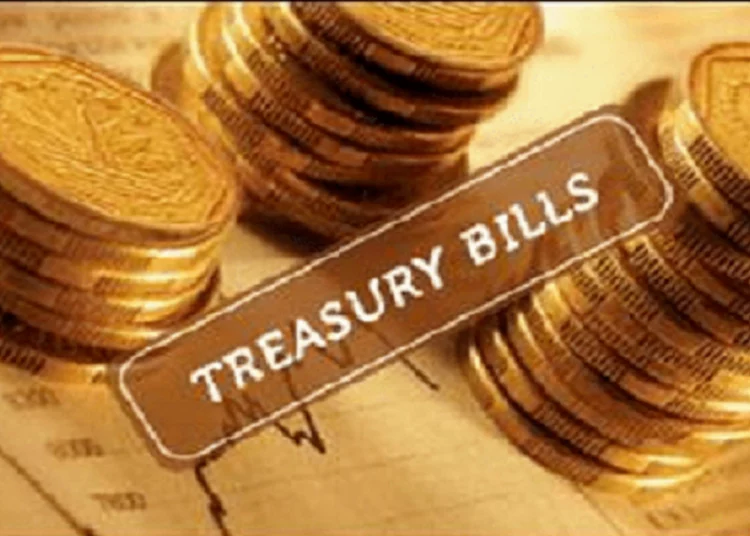In the financial investment space, there are long term investments such as the stock market, the medium term investments such as bonds, as well as the short term instruments which is Treasury Bills.
Treasury Bills are short-term debt instruments issued by the federal government of any country through its Central Bank to raise short-term funds from private individuals, institutional investors, non-governmental organisations, religious bodies amongst others for the purpose of financing government budget deficit.
Basically, when individual or corporate investors buy Treasury Bills, they are lending money to the government. The Nigerian government uses the money meet its obligations such as financing its debt and pay ongoing expenses such as salaries and military equipment.
Treasury Bills are issued by the Central Bank of Nigeria (CBN) and it is guaranteed and backed with the full faith of the Federal Government of Nigeria. Since it is guaranteed, Treasury Bills are risk free short term investments.
T-Bills can be purchased either in a primary or secondary market. In Nigeria, the CBN conducts T-Bills auction usually every fortnight at the primary market, and requests investors to quote the rates they are willing to pay on the different tenors of T-bills usually 91-day, 182-day and 364-day instruments.
At the auction, the maximum rate at which the CBN is willing to sell is called the stop rate. Any investor that quotes below or at that rate gets the amount quoted and at the individual rate and any investor that quotes above the stop rate is bided out.
While the primary market holds every two weeks, at the secondary market T-Bills can be bought every other day. To buy T-Bills at the primary mark, an investor must be ready to put in not less than N50 million while at the secondary market, investors can put in a minimum of N100,000.
How it works
T-Bills are issued for specific time period usually 91-day (3 months), 182-day (6 months) and 364-day (one year) tenors in the primary market. The rates on T-Bills are quoted annually; as a result an investor gets the full rate only if the tenor is up to 364-day.
For instance, if the rate on a 182-day T-Bills is quoted at 10 per cent, the investor effectively gets five per cent. However, in the secondary market, T-Bills can be bought at irregular tenors ranging from one to 363 days.
Treasury Bills are issued at an interest rate often referred to as discount rate. This is because the investor gets its interest upfront. This means that the interest promised on a T-bill instrument is payable on the very day the investment commences.
For instance, if a T-bill promises a 10 per cent rate per annum and an investor wants to put in N100,000, the investor pays only N90,000 from the day of investment but gets back N100,000 at maturity. The maturity value which is N100,000 is referred to as face value while the initial investment of N90,000 referred to as the discount value.
As interest is paid upfront, the true yield is actually the N10,000 interest received divided by the N90,000 actually paid. That is N10,000/N90,000 translating to 11.11 per cent. This is however higher than the 10 per cent rate per annum. The True Yield is fully earned when investors hold to maturity.
At the secondary market, you can sell T- Bills before maturity. However, the price at which you sell depends on the prevailing interest rate. For instance, a N100,000 Face Value (FV) T-Bills maybe selling for less or more depending on the prevailing interest rate as at the time of the sale as yield expectation influences interest rates.
If your FV is trading at a higher price, it means you can sell your T-Bills at a profit as such your N100,000 can sell for N101,000 or more. If your FV is trading at a lower price, it means you can sell your T-Bills at a loss and as such, your N100,000 can sell for N99,000 or less.
Benefits of Investing in Treasury Bills
Treasury bills in Nigeria are guaranteed by the full faith of the Federal Government; hence, there is no default. In the event that the government cannot pay, the CBN can print money to settle all investors.
Investing in T-Bills encourages savings and it can be easily converted to cash.
T-Bills also pay higher interest than an investor will get from a Commercial Bank plus the fact that T-Bills certificate can be used as a collateral for Bank loans.
Its active secondary market also ensures that there is ease in not just entry but also for exit.
Treasury Bills also provide investment opportunity not just the big player in the investing world, but also small and new payers in the debt instrument market
Like other types of debt securities, the price of T-bills and the return for investors may be affected by various factors such as macroeconomic conditions, investor risk tolerance, inflation, monetary policy, and specific supply and demand conditions for T-bills.
We’ve got the edge. Get real-time reports, breaking scoops, and exclusive angles delivered straight to your phone. Don’t settle for stale news. Join LEADERSHIP NEWS on WhatsApp for 24/7 updates →
Join Our WhatsApp Channel










